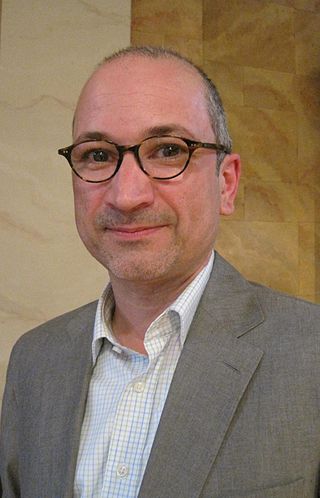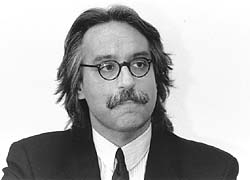Klaus Vondung (born 16 July 1941) is a German scholar in the fields of cultural and German studies. The focus of his academic work lies in the interplay of literature, politics and religion during the German Empire, Nazi Germany and beyond.
Klaus Vondung (born 16 July 1941) is a German scholar in the fields of cultural and German studies. The focus of his academic work lies in the interplay of literature, politics and religion during the German Empire, Nazi Germany and beyond.
Klaus Vondung was born in Ulm. He studied German, history, philosophy and politics at University of Tübingen and Ludwig Maximilian University of Munich (LMU), where he passed the Staatsexamen during the winter semester of 1965/66. Three years later he received the Doctor of Philosophy (Dr. phil.) degree fromf LMU and spent the next two years as a lecturer. Having been granted a scholarship from the German Research Foundation, he spent two years of post-graduate research at Stanford University.
Following a habilitation about the more recent history of German literature, Klaus Vondung was appointed a professor of German studies and literature at the University of Siegen in 1976, a post which he held until becoming an emeritus in 2006. [1] [2] During his time in Siegen, he also served at times as dean and prorector (Vice President).
Vondung's academic research interests are expressed by the premise of the graduate school "Forms of Communication as Forms of Life", of which he was the speaker. Other scientific projects headed by him include "Turn of the millennium: Fears and Visions" (1998–2000, funded by the Volkswagen Foundation) and "Mysticism and Modernity" (as part of the larger "Key Issues of the Geisteswissenschaften ").
During his academic career, Vondung was a guest professor at the universities of Florida, of Houston, and of Osaka, as well as Kwansei Gakuin University and Zhejiang University, the last one on unlimited terms.

Eric Voegelin was a German-American political philosopher. He was born in Cologne, and educated in political science at the University of Vienna, where he became an associate professor of political science in the law faculty. In 1938, he and his wife fled from the Nazi forces which had entered Vienna. They emigrated to the United States, where they became citizens in 1944. He spent most of his academic career at Louisiana State University, the Ludwig Maximilian University of Munich and the Hoover Institution of Stanford University.

The Ludwig Maximilian University of Munich is a public research university in Munich, Bavaria, Germany. Originally established as the University of Ingolstadt in 1472 by Duke Ludwig IX of Bavaria-Landshut, it is Germany's sixth-oldest university in continuous operation.

Alfred Schmidt was a German philosopher.

Christian Heinrich Arthur Drews was a German writer, historian, philosopher, and important representative of German monist thought. He was born in Uetersen, Holstein, in present-day Germany.
Klaus Gustav Heinrich von Beyme was a German political scientist who was professor of political science emeritus at the Faculty of Economic and Social Sciences of the University of Heidelberg.
Wolfgang Schivelbusch was a German scholar of cultural studies, historian, and author.
Imanuel Geiss was a German historian.

Rudolf Simek is an Austrian philologist and religious studies scholar who is Professor and Chair of Ancient German and Nordic Studies at the University of Bonn. Simek specializes in Germanic studies, and is the author of several notable works on Germanic religion and mythology, Germanic peoples, Vikings, Old Norse literature, and the culture of Medieval Europe.
Avraham Barkai was a German-born Israeli historian and researcher of antisemitism. He died at age 99 on 29 February 2020 in Lehavot HaBashan.

Horst Möller is a German contemporary historian. He is Professor of Modern History at the Ludwig Maximilian University of Munich (LMU) and, from 1992 to 2011, Director of the Institut für Zeitgeschichte.

Ferdinand Fellmann was a German philosopher. After the expulsion of his family in 1946 out of Hirschberg Fellmann grew up in Hameln/Weser (Germany).
Heinz Schilling is a German historian.

The Militant League for German Culture, was a nationalistic anti-Semitic political society during the Weimar Republic and the Nazi era. It was founded in 1928 as the Nationalsozialistische Gesellschaft für deutsche Kultur by Nazi ideologue Alfred Rosenberg and remained under his leadership until it was reorganized and renamed to the National Socialist Culture Community in 1934.

Christoph Bode is a literary scholar. His fields are British and American literature, comparative literature, literary theory, poetics, and travel writing, but he is mainly known as a romanticist and a narratologist. He was full professor and chair of Modern English Literature in the Department of English and American Studies at Ludwig-Maximilians-Universität München until his retirement in March 2018.
Max Wentscher was a German philosopher and professor of philosophy at the University of Bonn.

Steffen Martus is a German literary scholar and Professor of Modern German Literature at Humboldt University in Berlin.
Martin Sommerfeld was a Jewish emigre from Nazi Germany to the U.S. who was a professor at the University of Frankfurt and subsequently at Columbia University, the City College of New York, Smith College, and Middlebury College, where he taught German language and literature. He authored and edited a number of volumes on German literature from the 16th to the 20th centuries, and he wrote numerous contributions to the four-volume Reallexikon der deutschen Literaturgeschichte (1925–31).
Klaus Sator is a German grammar school teacher, political scientist, historian, author and Information manager.
Rudolf Vierhaus was a German historian who mainly researched the Early modern period. He had been a professor at the newly founded Ruhr University Bochum since 1964. From 1971, he was director of the Max-Planck-Institut für Geschichte in Göttingen. He became known for his research on the Age of Enlightenment.

Klaus Siebenhaar is a German university lecturer, publisher and cultural manager. In addition to his academic career at the FU Berlin, where he was director of an institute of Communication Science and Applied Cultural Studies from 1988, Siebenhaar worked for several publishing houses and theatres as an editor and publisher. He then founded his own publishing house, B&S Siebenhaar Verlag, as well as the Institute for Culture and Media Management (IKMW) at the university.